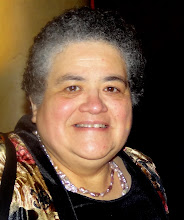
Dictator Augusto Pinochet

President Salvador Allende of Chile
This September, Dr. Felicia Nimue Ackerman, a philosophy professor at Brown University, published an essay in the Providence Journal, “What we will not say in my classes.” This is the beginning of her essay:
“BROWN UNIVERSITY’S fall semester classes began this month, and I began by telling students my usual ground rules. This presentation goes approximately as follows:
“I expect you to come to class, but you don’t have to give me explanations for any absences. I will suggest paper topics and completion dates, but you don’t have to stick to them. I have one strict rule, though. In my courses, we never, never, never, never . . .”
At this point, I add that I hope all these “nevers” are arousing everyone’s curiosity. Sometimes I ask students to guess. What is it that we never do?
We never discuss our personal lives."
I couldn't disagree more. Her essay reminded me of two experiences I had when I was a graduate student teaching assistant at UCLA.
One of my students was Mai, a young Vietnamese woman enrolled in the freshman summer program (much like our Talent Development Program at URI) who was the most fanatically intense student I have ever had. She took down every word I said and studied the entire weekend. She came to class exhausted from having studied half the night. I began to worry that she would make herself sick and I spoke to her about approaching things in a more moderate way, (This is the ONLY conversation like this I have ever had with a student.) Finally, I asked her why she was pushing herself so hard. She began to cry and she told me this story:
She and her family were boat people. They had been standing on the shore, scrambling aboard the boat when Viet Cong soldiers came and started shooting. Her father jumped in the boat and pulled his children in; mom was helping them by pushing from the ground. When the soldiers started shooting, the boat took off leaving mom stranded on the shore. Her father and the children, including my student, came to America; they didn't know if mom was alive or dead. My student was working so hard because she wanted to finish college in as short a time as possible so she could go to law school to become an international lawyer, and go back and look for her mother. I had little doubt that her mother was dead but I had heard of a group that looked for missing Vietnamese people and I put her in contact with them.
Our class had been discussing immigration and the civil wars in Central America. After she told me about her experience, she agreed to tell our class. You can imagine how shocked her classmates were that she had undergone such an ordeal. They gave her a great deal of support. I have always believed that sharing the story with them helped her a great deal and it opened their eyes to things they had never imagined.
Another student I had during that period was Ana, a Chilean student. When were discussing the overthrow of Chilean president Salvador Allende on September 11, 1973, she looked stricken; so much so that when the class ended, she did not leave her seat. I asked her what was wrong. This was her story:
Her father had been a minister in Allende’s government. General Augusto Pinochet, with the help of the United States, overthrew President Allende, the democratically-elected president of Chile, and installed himself as dictator. He detained 30 to 40 thousand people. He tortured and disappeared and/or killed some 3000 people during the 17 years he was in power. Ana was 5 years old when the coup occurred.
Her father disappeared during the initial days of the coup. The family was sick with worry, sure that he had been killed. Weeks later, he was brought home, half-starved, ill; the signs of torture on his frail body. The family was told that they must take what they could carry and that they were being sent to the United States. (I do not know why her family merited this treatment, especially after what they had done to her father.) Certain that they were going to be killed, Ana’s mother gathered a few belongings and gathered the children. They were taken to the airport where they were indeed sent to New York. They arrived with the clothes on their backs and little else. Ana was so traumatized that she stopped talking and stopped eating. It took a long time before they could convince the child to eat; it was years before she spoke. And they were the lucky ones; they got out.
Ana wanted to tell the class about it but wanted to be sure I would not object. After hearing her story, her classmates looked shell-shocked. All the lectures, books and movies that I used to bring history to life could not compete with the lived-experience of oppression described by their classmate.
We were lucky that these two young women were able to share their experiences with us. I grew up in a household where my mother adamantly refused to talk about the past except in the sunniest, Pollyanna ways and I did not know until I was in my thirties that she had lived through La Matanza, the infamous genocide of 30,000 indigenous people in the western departments of El Salvador.
Neither history nor philosophy exist in a vacuum. These are humanities; in one way or another, they reflect and distill human experience. For my students and for me, Mai’s and Ana’s stories were gifts; each a dose of reality as an antidote to the sunny version of heroic history our governments tell our people. Undoubtedly, Felicia Nimue Ackerman would disagree. (967)



No comments:
Post a Comment